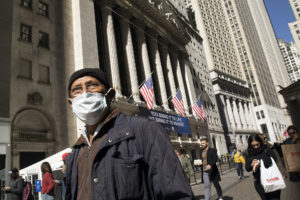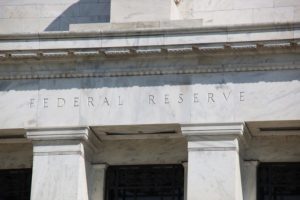The True State of the Economy
There is a tradeoff for all the loot Obama’s friends have been pilfering from working people, and that tradeoff is trust. Americans no longer have confidence in the government, the market or the justice system. And while the effects might not appear in the next month or two, there are sectors of the economy that are showing signs of weakness already.
By Mike Whitney, CounterPunchThis piece first appeared at CounterPunch.Slumping asset prices show a recession is probably on its way. … Stocks tend to fall more frequently and further than property values, so they are better recession-predictors.
— IMF research paper by economists John C. Bluedorn, Joerg Decressin and Marco E. Terrones. Bloomberg News
The fact that stock prices have been drifting lower, doesn’t prove that the economy is headed for recession. Nor does political dysfunction (government shutdown), droopy home sales, plunging confidence, chronic high unemployment, rising levels of extreme poverty, unprecedented public dependence of food stamps, weak personal consumption, stagnant wages, falling middle class incomes, or gaping inequality. They may show a country that is on the wrong track and has its priorities mixed-up, but they don’t show that another recession is imminent. Even so, it’s easy to wonder how bad things have to get before the economy more closely reflects the mood of the country which is relentlessly pessimistic. To say that no one believes in Obama’s recovery would be a gross understatement. Obama supporters feel duped, misled, and despondent. Obama is not the agent of change they’d hoped for. He’s expanded the wars, slashed vital safety net programs, exonerated Wall Street criminals, and continued the vicious attack on civil liberties. He’s done everything in his power to boost the profits of the big corporations and banks, but hasn’t lifted a finger to help ordinary working people. And his efforts have paid off, too. Just look at this from Huffington Post:
Corporate profits have increased by 18.6 percent over the past year…. In fact, corporate earnings now represent a larger share of GDP than during any other period in history…
Real wages have declined by nearly seven percent in the past seven years, according to data collected by the compensation research company Payscale. In other words, U.S. workers have less buying power now than they did before the financial crisis…
Payscale’s findings are just the latest in a slew of research that indicates the sluggish economic recovery has not been beneficial for most of us. Income inequality in the U.S. is at a new high as skyrocketing income gains for the top one percent are met by stagnating wages for practically everyone else. (“Corporate Profits Are Soaring, But You’re Not Feeling It“, Huffington Post)
Okay, so you’ve heard it all before, but here’s something you might not know. At the same time the corporations and banks are reporting record profits, Gallup surveys show that “trust in all three branches of the federal government remains on the lower end of what Gallup has measured historically” while “Americans’ trust in banks fell to an all-time low of 18% — lower than its level at the height of the global financial collapse.” (Gallup)
So, there is a tradeoff for all the loot Obama’s friends have been pilfering from working people, and that tradeoff is trust. Americans no longer have confidence in the government, the market or the justice system. Gradually, that lack of trust will cross-over into the economy as wary consumers set aside more of their earnings to protect themselves from the government-corporate-racketeer oligarchy. A slowdown in personal consumption will impact retail sales, durable goods, hiring and capital investment. It will douse those green shoots with motor oil and push the economy back into negative territory. And while that might not happen in the next month or two, there are sectors of the economy that are showing signs of weakness already. Take housing, for example, which is progressively losing momentum as the year drags on. This is from an article at Global Economic Intersection:
Existing Home Inventories are building, which clearly reflects a fall in demand; and also possibly greater motivation amongst sellers to get out. The inventory trajectory continues to closely shadow the pattern of 2010…. This pattern suggests that the housing market is reaching a critical point at which further intervention from both the Federal Reserve and Federal Government may be needed to give it some more momentum. (“Housing smoke and mirrors,” Global Economic Intersection)
Then there’s this from Wells Fargo concerning the vanishing of investors who’ve been driving the market for the last year:
The housing market is transitioning away from a rebound driven primarily by speculative forces to one where the underlying fundamentals will be much more important,” Wells Fargo said in a report. “Over the past few years investor purchases have been the primary driver of the housing recovery, helping clear inventories of foreclosed and lender-owned properties and pulling home prices dramatically higher. Home prices, which tumbled 33.7 percent from peak to trough using the S&P/Case-Shiller Home Price Index, have since rebounded 16.3 percent and are up 12.4 percent over the past year alone. The swing in prices exaggerates the extent of improvement and likely reflects the whipsaw effect of prices overshooting to the downside during the worst of the housing bust. (“Wells Fargo Predicts Market Rebound”, DS News)
And here’s more from CNBC’s Realty Check:
A potential stall in home price gains and a large drop in the number of distressed properties have some big investors pulling out of the single-family rental market…
“I think the investor market is largely past us,” Doug Lebda, chief executive of Lending Tree told CNBC. “People were buying investment properties three, four, five years ago. What I hear is that’s slowing now.”
Recent reports that Oaktree Capital Group is selling about 500 of its homes added fuel to other reports that Och-Ziff Capital management is selling its homes as well. Both declined to comment on the reports. Carrington Mortgage Services stopped buying distressed homes late last year, claiming the market was “a bit too frothy…” (“Investors in rental homes: ‘It’s a business not a trade’”, CNBC)
We’ve been predicting that the speculators would exit the market eventually, but we didn’t think it would happen this fast. This news should have the administration and the Fed sweating bullets as the Potemkin housing recovery is the only sector that was showing improvement at all. A dropoff in demand should show up in the October existing homes sales data which will put more pressure on the Fed to increase its purchases of mortgage-backed securities (MBS) even though bubbles are popping up everywhere in the financial markets. As Pimco’s Mohamed El-Erian said in recent Bloomberg interview “Virtually every market is trading at artificial levels” while investors are “taking more risk than is justified.” Aside from historic levels of margin debt and a splurge of corporate stock buybacks, there are also signs of froth in fixed income and junk. Take a look at this from Reuters:
Retail money keeps flooding into loan funds, marking 66 straight weeks of heavy inflows, according to Lipper data. Loan funds pulled in $1.3 billion in the week ended September 18, during which the Fed surprised the markets with its plan to keep on buying $85 billion of bonds weekly to keep rates low and boost economic growth.
Loan fund inflows accelerated over the summer on expectations that the U.S. central bank was about to reduce those bond purchases this month, keeping interest rates rising. Issuance of collateralized loan obligations (CLO), another key source of demand for leveraged loans, at $57 billion so far this year already topped last year’s issuance. (“U.S. leveraged loan buyers undeterred by Fed, regulation“, Reuters)
Yipee! Another gargantuan asset bubble!
By choosing not to reduce its monthly asset purchases (“Taper”) the Fed has again stepped on the gas and flooded the markets with beaucoup liquidity. That’s blowing bigger and more lethal bubbles than ever. And it’s not just junk either; the bubbles extend across the spectrum of financial assets, from stocks and bonds, to structured debt, derivatives, farmland, and CLOs. You name it, Bernanke’s inflated it. The whole shebang has been grossly distorted by the Fed’s persistent pump-priming frenzy. Just get a load of what Blackstone’s private equity chief said last week. This is from the Testosterone Pit:
Blackstone’s global head of private equity, Joseph Baratta, said Thursday night that “we” were “in the middle of an epic credit bubble,” the likes of which he hadn’t seen in his career…
Junk bond issuance hit an all-time record of $47.6 billion in September, edging out the prior record, set in September last year, of $46.8 billion, according to S&P Capital IQ/LCD. Year to date, issuance amounted to $255 billion, blowing away last year’s volume for this period of $243 billion. The year 2012, already in a bubble, set an all-time record with $346 billion…
The cost of a high-yield bond on an absolute coupon basis is as low as it’s ever been,” explained Baratta, king of Blackstone’s $53 billion in private equity assets. Even the riskiest companies are selling the riskiest bonds at low yields….. Baratta complained that valuations “relative to the growth prospects are out of whack right now.” (“Bubble Trouble: Record Junk Bond Issuance, A Barrage Of IPOs, “Out Of Whack” Valuations, And Grim Earnings Growth”, Testosterone Pit)
“Out of whack right now”? Think so?? You mean Bernanke can’t just hook a helium-hose up to the financial markets and pump like crazy for 4 years without creating a Hindenburg-sized monster bubble that threatens to blow the whole system to Kingdom come? Is that what you mean?
This is lunacy. The economy is sputtering along at sub-2 percent, millions of people can’t find work, public confidence in the government is down the plughole, and Bernanke’s playing circle-jerk with the money supply. This is the recovery we’re expected to believe in? Just look at the problems the banks are having. This is from the Wall Street Journal:
New troubles are piling up for U.S. banks as they prepare to release third-quarter results amid warnings of weak trading revenue, a sharp decline in mortgage-refinancing activity and rising legal costs….Analysts reduced revenue estimates for the six largest U.S. banks during the quarter and cut profit estimates for all but Wells Fargo…
“I haven’t seen morale this bad since the Titanic,” said Richard Stein, a senior recruiter at Caldwell Partners CWL.T -3.41% who specializes in financial services…
The tempered expectations are a troubling sign for an industry already struggling to overcome lackluster loan demand, a weak economy and the hangover from the 2008 financial crisis…”?Weak Trading, Mortgage Slump, Legal Costs to Cut Results at Banks“, Wall Street Journal)
You know you’ve got problems when an industry guy compares the situation to the Titanic. That’s not what you call a “ringing endorsement”.
But can you believe it? These are the same worthless, zombie banks we bailed out just four years ago to the tune of many trillions of dollars and they’re back on the ropes again? How does that happen? And all the while the Fed has been lending them gobs of money at zero percent, loading them with trillions in reserves, pumping up their stock prices with a small ocean of free liquidity, and they still can’t hack it. They must have the shittiest business model in history. Either that, or crime doesn’t pay after all.
The fact is, the banks are dragging down the entire economy and everyone with it. You simply can’t restructure the whole system to accommodate bumbling imbeciles whose only strategy for survival is mooching off the government. Four years into the so-called recovery and bank lending is still contracting. This is ridiculous. These chiselers make their dough trading derivatives and moving loan loss provisions into the profit column to buffalo shareholders. It’s a big freaking game. We should have shut down these zombies when we had the chance. Now they’ve BECOME the government. And that’s why the economy is headed for another slump.
Mike Whitney lives in Washington state. He is a contributor to Hopeless: Barack Obama and the Politics of Illusion (AK Press). Hopeless is also available in a Kindle edition. Whitney’s story on declining wages for working class Americans appears in the June issue of CounterPunch magazine. He can be reached at [email protected].
Your support matters…Independent journalism is under threat and overshadowed by heavily funded mainstream media.
You can help level the playing field. Become a member.
Your tax-deductible contribution keeps us digging beneath the headlines to give you thought-provoking, investigative reporting and analysis that unearths what's really happening- without compromise.
Give today to support our courageous, independent journalists.






You need to be a supporter to comment.
There are currently no responses to this article.
Be the first to respond.